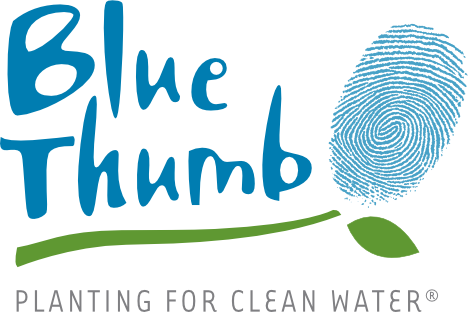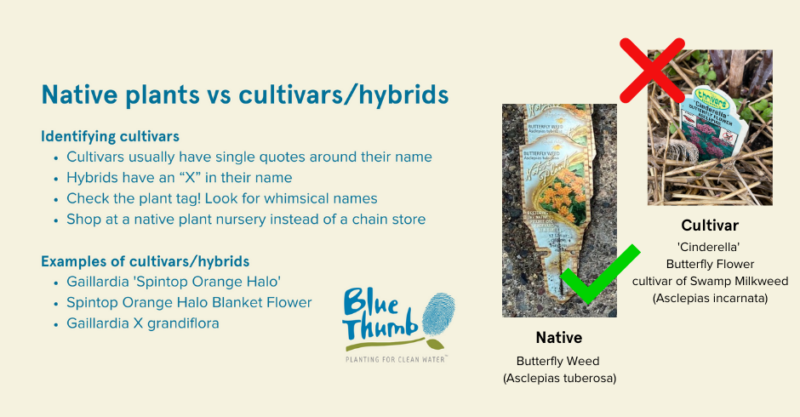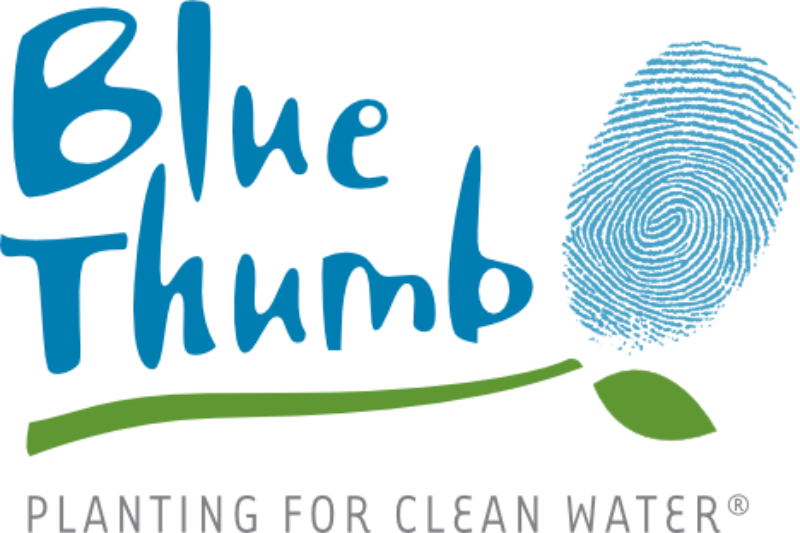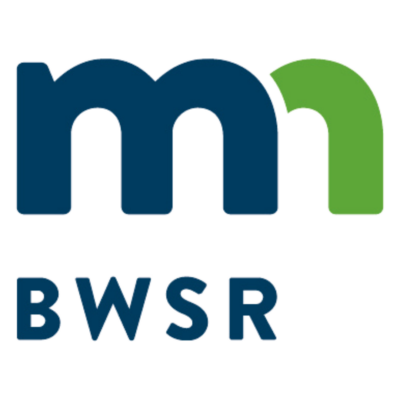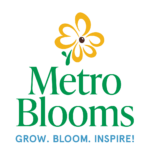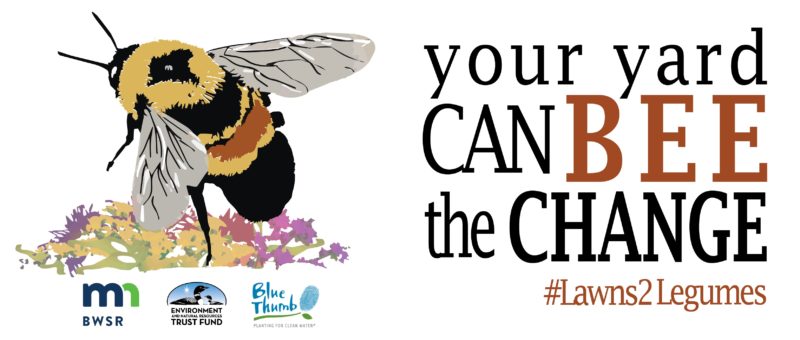 The Lawns to Legumes program has requirements on the types of purchases that can be eligible for reimbursement. Refer to the guide below when purchasing native plants and materials for your pollinator habitat project. If you have any questions about whether a purchase is reimbursable, please email the L2L Helpline. Refer to the Lawns to Legumes Participant Agreements for additional grant commitments.
The Lawns to Legumes program has requirements on the types of purchases that can be eligible for reimbursement. Refer to the guide below when purchasing native plants and materials for your pollinator habitat project. If you have any questions about whether a purchase is reimbursable, please email the L2L Helpline. Refer to the Lawns to Legumes Participant Agreements for additional grant commitments.
Download a printable version of the Spring 2026 L2L Eligible Expenses Guide here.
Please note: This Eligible Expenses Guide has been updated for the Spring 2026 cohort. If you are a 2025 grantee with an extension, please refer to the 2025 version of the L2L Eligible Expenses Guide.
BACK TO GRANTEE GUIDE
Native Plants and Seeds
To make the biggest impact for pollinators, Minnesota native plants and seeds should be the primary focus of your project. To be reimbursed, your project must involve the addition of new native plants within the grant period.*
Eligible Minnesota native plants and seeds include: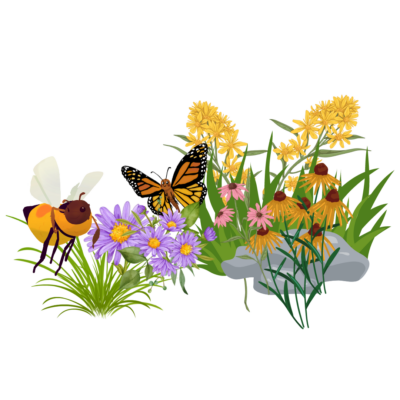
-
- flowers/forbs
- bare root plants
- grasses, sedges, and ferns
- trees and shrubs
- seeds
Check the native range of a plant using the USDA PLANTS database, or the Minnesota Wildflowers website.
Avoid Non-Natives and Cultivars: Non-native plants, hybrids, and cultivar varieties or native plants are not reimbursable. Learn more about how to avoid cultivars here.
Sourcing:
- When possible, buy native plants and seeds from local vendors with a maximum distance of 200 miles of project locations.
- We strongly recommend purchasing native plants from the Lawns to Legumes Minnesota Native Plant Nurseries and Retailers list. Many of the listed retailers offer delivery, and delivery fees are reimbursable. Minnesota native plant sales are also a good option for sourcing plants.
- The Blue Thumb Plant Finder lists many MN native plants commonly found in nurseries, or check out the native plant lists and design templates on our Resources page.
Species Identification:
- To be reimbursed, the species name of a plant must be verifiable so that our team can confirm it is native to Minnesota and not a cultivar variety. This means:
- Receipts for plants must be itemized with species names listed.
- If a receipt for plants is not itemized, you must also submit a photo of the plant tags or a list of the plant names.
- Lawns to Legumes only reimburses plant purchases made from businesses or organized plant sale events. Purchases from individuals (such as neighbor-to-neighbor sales or Facebook Marketplace listings) are not eligible for reimbursement.
All-Season Blooms: Try to incorporate at least three plant species that bloom during each season (spring, summer and fall) with higher diversity strongly encouraged.
Avoid purchasing plants treated with neonicotinoids/systemic pesticides to the extent possible. Before purchasing plants, check with your vendor to ensure that their plants are neonicotinoid-free. Learn more about the impacts of pesticides on pollinators from the University of Minnesota and the Xerces Society.
Other Project Expenses
Depending on the needs of your project, the following eligible materials can help your planting be successful. Remember to keep native plants the focus of your project.*
Protecting Your Project
- Weed suppression materials:
- Wood Mulch; non-dyed and locally sourced preferred.
- Sustainability tips: Avoid cypress mulch (learn more). Reduce plastic waste by sourcing mulch from municipal piles or bulk delivery services like ChipDrop.
- Biodegradable weed suppression material including cardboard, paper-based landscaping fabric, erosion control blankets, germination blankets, straw, and stakes for fabric/blankets. Plastic-based or synthetic products are not reimbursable.
- Edging and herbivore barriers, up to $100
- Non-plastic products are preferred for edging material.
- Herbivore barrier materials can include chicken wire and stakes, mesh baskets, tree guards, etc. Repellants or sprays are not reimbursable.
Signage for Your Project
- Stake for your L2L yard sign (you’ll be mailed a sign after completing your project!)
- Plant markers/labels for identification
If Needed
- Equipment rental fees (for example, renting a sod kicker to remove turf)
- Delivery fees for eligible expenses
- Paying a person or service for consultation, design, site prep or installation help/labor.
- See this example for what information needs to be included on receipts for services.
- All contracted work must be through the current grant period to be eligible for reimbursement.
- Use the Blue Thumb Partner Finder to find services near you!
- For container planting project types only: soil**, containers, planters/pots, and raised bed materials up to $100)
- A container planting is a pollinator planting fully contained above ground in pots or planters. The container must have a base and be structurally separate from the surrounding earth. This option is offered for renters as well as participants without traditional yard space.
- Projects with edging, borders, stone walls, or other materials enclosing soil directly on the ground are considered in-ground gardens and do not qualify as container plantings.
* BlueThumb/MN BWSR has the right to refuse reimbursement if project funds were not used for the primary purpose of creating native pollinator habitat.
** Why is soil not reimbursable for non-container projects? Soil is not an eligible expense for projects not involving containers because native plants can be selected for a wide range of soils in Minnesota. Dry prairie plants are well adapted to sandy, nutrient poor soils and do not typically need amendments.
Sales tax is reimbursable on all eligible Lawns to Legumes purchases.
Cultivars and Non-Native Plants
Non-native cultivars, “nativars,” hybrids and annuals are not eligible for reimbursement, except for the exceptions listed below. For more guidance, this handout provides tips for identifying whether a plant is native or a cultivar.
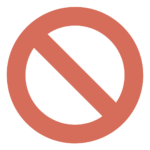
Cultivar and Non-Native Exceptions
Lawns to Legumes provides reimbursement for several non-native and cultivar plants due to their functionality in pollinator lawns, adaptability to Minnesota’s climate, or benefit to pollinators. If you are not sure whether a plant is eligible for reimbursement, please email the L2L Helpline (l2lhelp@bluethumb.org)
| Common Name |
Scientific Name |
Reason for Exception |
| Fescue grasses |
All Festuca species |
Pollinator lawn species |
| Self-heal |
Prunella vulgaris |
Pollinator lawn species |
| Yaak yarrow |
Achillea millefolium var. ‘yaak’ |
Pollinator lawn species |
| White clover (Dutch White Clover, microclover) |
Trifolium repens |
Pollinator lawn species |
| Serviceberry tree |
All Amelanchier species
|
Beneficial for pollinators |
| Hawthorn tree |
All Crataegus species |
Beneficial for pollinators |
| Black chokeberry |
Aronia melanocarpa |
Beneficial for pollinators |
| Prairie Crabapple |
Malus ioensis |
Beneficial for pollinators |
*Non-native creeping thyme seeds may be reimbursed if they are part of a pollinator lawn seed mix or as an element of a pollinator lawn for areas with sandy soil. If you do not have primarily sandy soil, we recommend the alternatives above. Please email the L2L Helpline if you have questions about using creeping thyme for your pollinator lawn project.
Time Requirement
Grantees are expected to spend at least 2 hours of time on their projects. This includes time spent watching the L2L Kick-Off Webinar and planning. You will need to share the total number of hours you spent on your project when filling out the Reimbursement Request Form.
Reporting Additional Spending
Track the total expenses spent on your project, including any expenses beyond the amount you request reimbursement for. (This will help us demonstrate the many outcomes of the Lawns to Legumes program!) You will need to share this information when filling out the Reimbursement Request Form.
Where can I purchase native plants?
The first place to look is our Native Plants Nurseries & Retailers list. A number of retailers on this list offer delivery if there is not a retailer located near you. While we recommend these retailers, your purchases do not have to be limited to this list.
The Minnesota DNR has a list of native plant vendors (it is important to check with any vendor to ensure that their plants are neonicotinoid free). The Wild Ones Chapters of Minnesota also have a list of native plant vendors.
When can I start making purchases?
You can start making purchases for your Lawns to Legumes project anytime after filling out the Grant Confirmation Form (linked in your award email). Lawns to Legumes can only reimburse eligible purchases made after the date of grant confirmation and before the project deadline.
Requesting Reimbursement
- Once you complete your project, submit a reimbursement request by the project deadline. For Spring 2026 grantees, the Reimbursement Request Form will be located within your Submittable account and an invitation to the form will be emailed to you on May 1, 2026. See Blue Thumb’s Grantee Guide for your deadline and steps.
- Prepare your materials: To submit a reimbursement request, you’ll need before and after photos of your project area, itemized receipts,* project size information, and documentation of the time and money spent on your project. Review what you’ll need on the Grantee Guide.
- *For vendors/services that don’t have receipts, you must create a receipt that includes all the information in this example, including signatures from both the buyer and vendor.
- Please be patient as we go through reimbursement requests. Our team individually reviews each request.
BACK TO GRANTEE GUIDE
 The Lawns to Legumes program has requirements on the types of purchases that can be eligible for reimbursement. Refer to the guide below when purchasing native plants and materials for your pollinator habitat project. If you have any questions about whether a purchase is reimbursable, please email the L2L Helpline. Refer to the Lawns to Legumes Participant Agreements for additional grant commitments.
The Lawns to Legumes program has requirements on the types of purchases that can be eligible for reimbursement. Refer to the guide below when purchasing native plants and materials for your pollinator habitat project. If you have any questions about whether a purchase is reimbursable, please email the L2L Helpline. Refer to the Lawns to Legumes Participant Agreements for additional grant commitments.